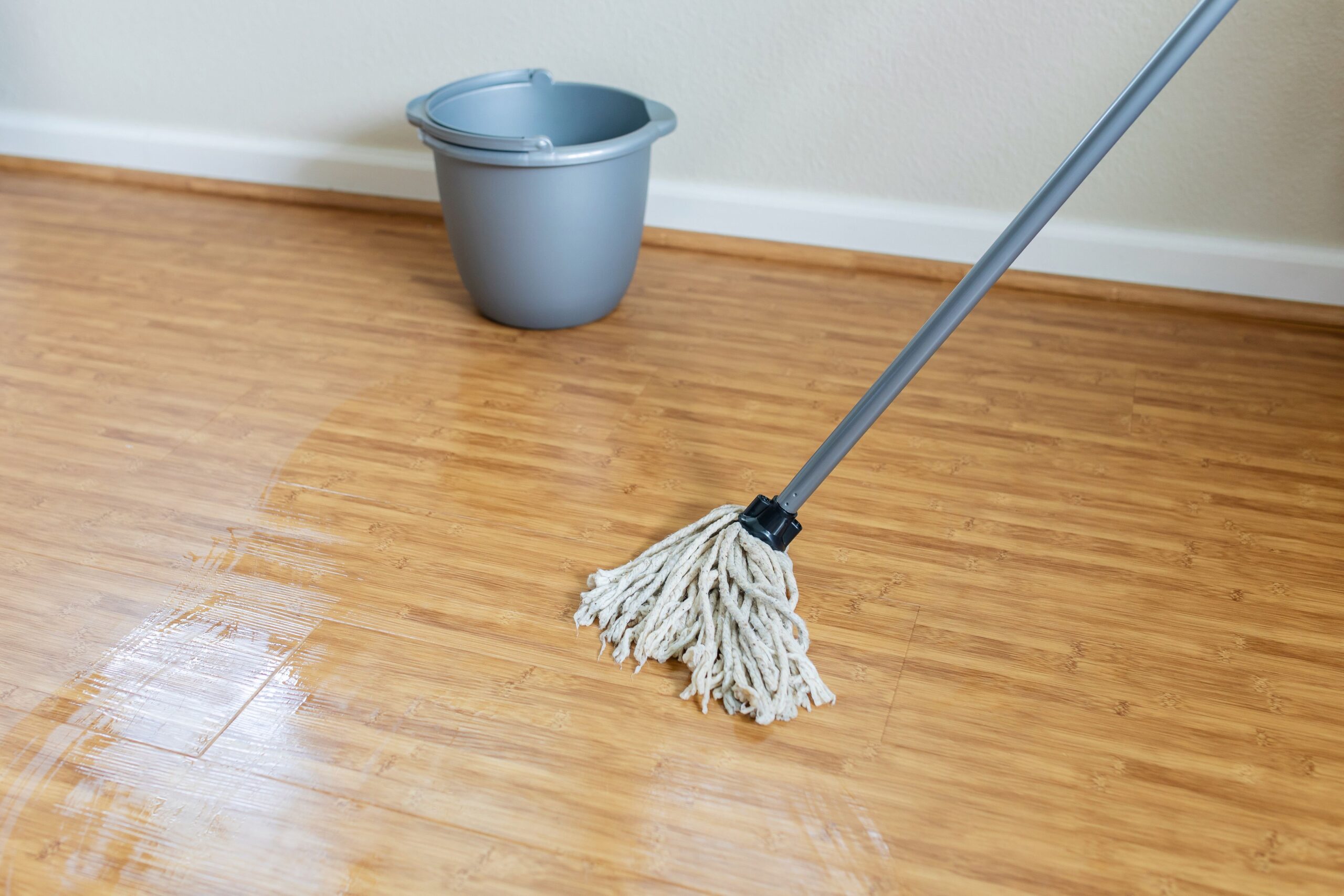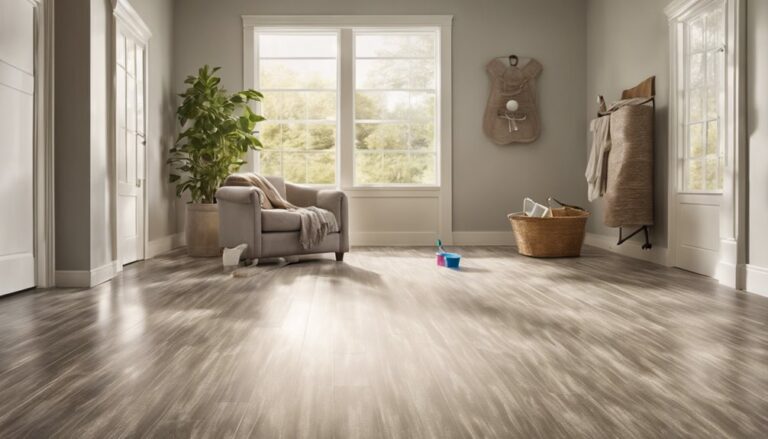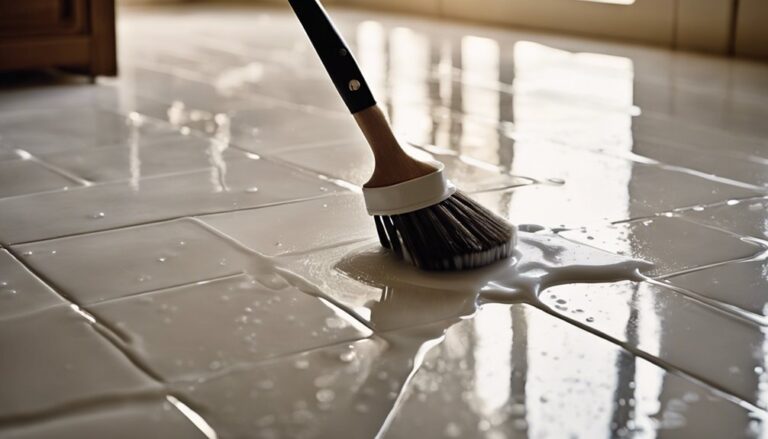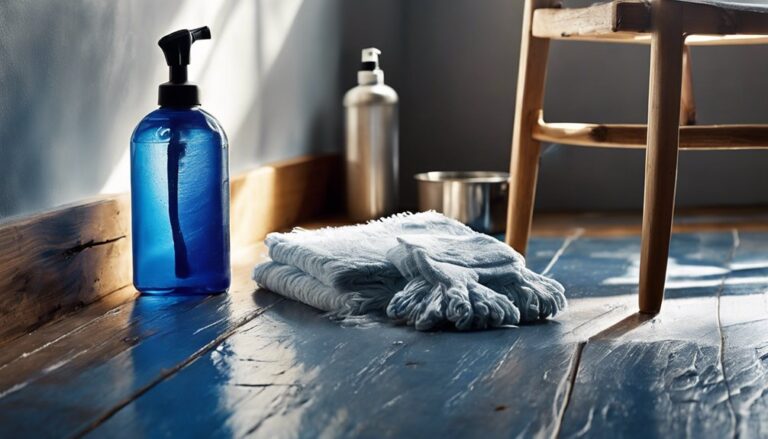Are you tired of walking on sticky floors or seeing unsightly stains that just won’t budge? Mopping your floor might seem like a mundane task, but it’s crucial for maintaining a clean and healthy home.
Whether you’re dealing with muddy footprints or spilled drinks, knowing the right way to mop can make a world of difference. Imagine the satisfaction of stepping onto a spotless floor that gleams with cleanliness. In this guide, you’ll learn simple, effective techniques that transform mopping from a chore into a breeze.
Ready to make your floors shine like never before? Let’s dive in and discover how to mop the floor like a pro!
Choosing The Right Mop
String mops are common. They clean large areas easily. Flat mops are simple. They work well on flat surfaces. Sponge mops are soft. They absorb spills quickly. Each mop has its use. Think about what you need.
Materials matter a lot. Cotton is very absorbent. It soaks up water fast. Microfiber is smooth. It attracts dust and dirt. Sponge is soft. It wipes clean surfaces well. Choose a material that fits your needs. It can make cleaning easier.
:max_bytes(150000):strip_icc()/mopping-basics-lead-getty-0823-003d647238e04ee4ad55421cfd5c23a9.jpg)
Selecting The Ideal Cleaning Solution
Cleaning the floor needs the right solution. Some people like homemade solutions. These are easy to make. Use ingredients like vinegar and water. They are safe and cheap. Others prefer commercial solutions. These come in bottles from the store. They might smell nice and clean better.
Both types have pros and cons. Homemade ones are good for the environment. Commercial ones might work faster. It is important to choose what suits your needs best.
| Floor Type | Solution recommandée |
|---|---|
| Bois | Vinegar and water mix |
| Tuile | Store-bought tile cleaner |
| Stratifié | Gentle soap and water |
Each floor type needs special care. Wood floors like a vinegar and water mix. Tile floors can handle stronger cleaners. Laminate needs gentle soap. Choosing the right one keeps floors looking nice.
Preparing Your Floor
Start by clearing the floor of furniture and debris. Choose a mop suitable for your floor type. Mix water and cleaning solution, ensuring it’s not too soapy. Dip the mop, wring excess water, and start mopping from the farthest corner.
Rinse and repeat for stubborn spots.
Clearing The Area
Move furniture to create space for mopping. Remove rugs and items on the floor. A clear area makes mopping easier and faster.
Sweeping Or Vacuuming
Sweep the floor to remove dirt and dust. Use a vacuum for carpets or hard-to-reach spots. This helps keep the mop clean.

Mopping Techniques
Use gentle strokes for smooth floors. Move the mop in an “S” pattern. This helps cover more area. Avoid pressing too hard. It can damage the floor. Keep your back straight. It helps avoid pain. Change the mop water often. This ensures cleanliness. Always mop towards the exit. Prevents stepping on wet areas.
Tough stains need extra care. Use a serpillière humide first. Apply a bit of solution de nettoyage. Let it sit for a few minutes. Gently scrub the stain. Use a brush if needed. Rinse the area with clean water. Dry it with a cloth. Repeat if the stain persists. Be patient and gentle. This protects the floor.
Drying The Floor
Start by mopping the floor carefully to remove dirt. Ensure the floor dries completely to prevent slips. Use a dry mop or towel to absorb excess water, leaving a clean, safe surface.
Air Drying Vs. Toweling
Air drying is easy and needs no extra tools. Just open the windows and let the wind do its work. This way is good for big spaces. Yet, it can take a long time.
Toweling is faster. Use a clean, dry towel to soak up water. Press the towel on the floor and drag it. Be sure to change towels when wet. This way is good for small rooms.
Preventing Streaks
Streaks can make floors look messy. To stop them, use a soft cloth. Move it in a circle. This helps remove extra water. Make sure the floor is dry before walking on it. Clean floors shine more. Keep them streak-free for a fresh look.
Maintaining A Clean Mop
Keep your mop clean for effective floor cleaning. Rinse it thoroughly after every use. Store it in a dry place to prevent mold and bacteria.
Washing And Storing
Keep your mop clean to make floors shine. Wash the mop head after every use. Use warm water and soap. It removes dirt and germs. Rinse it well to remove soap. Hang the mop to dry. Air drying stops bad smells. Store the mop in a dry place. It keeps it clean for next use.
Replacing Mop Heads
Check mop heads for wear and tear. Replace them when they look worn out. A new mop head cleans better. It picks up dirt easily. Buy extra mop heads to have on hand. This way, you are always ready to clean. Keep your mop looking fresh and working well.
Safety Tips
Ensure a clean and safe mopping experience by wearing non-slip shoes. Keep the mop head clean to avoid spreading dirt. Remove obstacles to prevent tripping while mopping.
Avoiding Slips And Falls
Nettoyage can make floors slippery. Always use a warning sign. It helps people know the floor is wet. Use a mop bucket with a wringer. This tool helps remove extra water. Dry the floor quickly to stop falls. Wear non-slip shoes. They help keep you safe on wet floors. Stay safe and alert.
Using Eco-friendly Products
Choisir eco-friendly mopping products. They are safe for the earth. Many are made from natural ingredients. These products are gentle on floors. They help keep your home safe and clean. You can find eco-friendly cleaners in stores. They often have less chemicals. This helps your family stay healthy.
Erreurs courantes à éviter
Too much water can hurt your floor. Planchers de bois can warp and carrelage can become slippery. Use a serpillière humide instead of soaking it. Make sure to wring out the mop. This keeps floors safe et faire le ménage.
Each floor type needs different care. Read instructions on cleaning products. Follow them closely. Wrong products can damage floors. Carpet cleaner does not work on wood. Always check first.
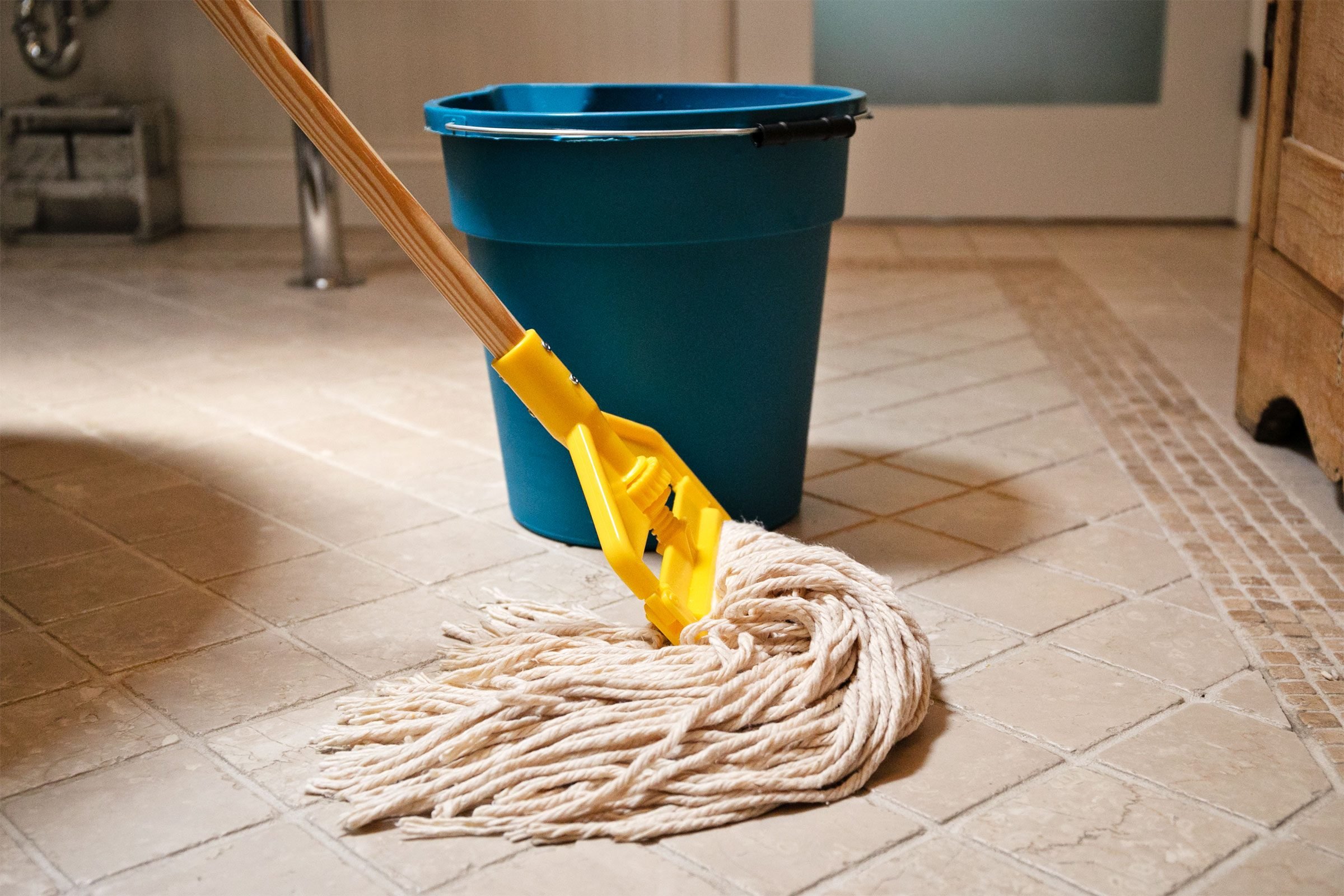
Questions fréquemment posées
What Is The Best Mop For Floors?
Choosing the right mop depends on your floor type. Microfiber mops are great for all surfaces. Sponge mops work well on tiles. Steam mops are ideal for disinfecting. Consider your floor material for the best choice. Always follow manufacturer instructions for optimal results.
How Often Should I Mop My Floors?
Mopping frequency depends on foot traffic and floor type. Generally, once a week is recommended. High-traffic areas may need more frequent cleaning. Pet owners might mop more often due to fur and dirt. Always adjust based on your household’s needs.
Can I Use Vinegar To Mop Floors?
Yes, vinegar is a natural cleaning agent. It’s effective for removing grime and bacteria. Mix equal parts of water and vinegar. Avoid using vinegar on stone floors as it can damage them. Always test in a small area first to ensure compatibility.
What Is The Best Technique For Mopping?
Start by sweeping or vacuuming the floor. Use a figure-eight motion while mopping for efficiency. Rinse the mop regularly to avoid spreading dirt. Change the water when it becomes cloudy. Dry the floor with a clean cloth for a streak-free finish.
Conclusion
Mopping the floor doesn’t have to be difficult. Follow these simple steps. Choose the right mop for your floor type. Use a suitable cleaning solution. Start from one corner. Move smoothly across the room. Rinse the mop often for best results.
Dry the floor to avoid slips. Clean regularly to keep floors fresh. A clean floor brightens any space. Enjoy the shine and cleanliness. Simple efforts lead to great results. Happy mopping!

